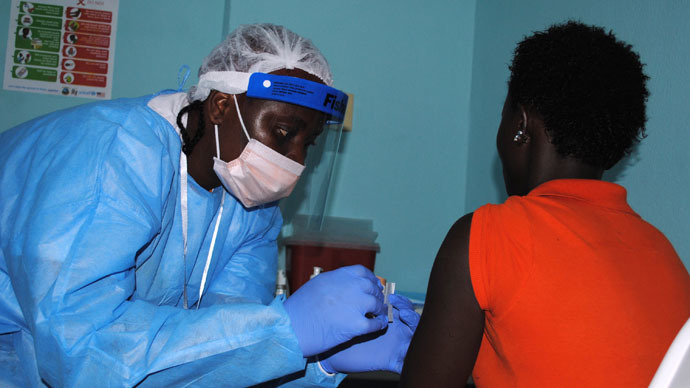Ebola response ‘far too slow’ and cost lives – UK watchdog

The UK’s response to the Ebola outbreak was “far too slow” and may have contributed to the loss of life, according to a UK parliamentary report, which called the international response to the contagion “totally inadequate.”
The Public Accounts Committee (PAC) criticized the Department for International Development (Dfid) for failing to take seriously calls from charities and NGOs on the ground, such as Doctors Without Borders, which warned of the outbreak’s severity early on.
“Had the department acted sooner, both lives and money would have been saved,” the committee said.
They said there had also been an “unfortunate time lag between the department's recognition that it had to act and its allocation of funding to deal with the outbreak.”
The decision to suspend flights from the UK to areas affected by the disease had “no scientific justification,” and “increased the cost and difficulty of dealing with the outbreak.”
“The revocation of licenses to carriers to fly direct to the region was a political decision with no basis in science and was inconsistent with World Health Organization (WHO) advice,” the committee stated.
“In our judgment, it will inevitably have led to an increase in the costs of dealing with the outbreak and, potentially, to further loss of life.”
READ MORE:Ebola crisis: Oxfam calls for multimillion dollar ‘Marshall Plan’
The Ebola outbreak, which started around March last year and mainly affected Sierra Leone, Guinea and Liberia, has resulted in 9,150 deaths and more than 22,000 cases as of February 7.
The committee did however praise the “bravery” of British volunteers and members of the armed forces working in Sierra Leone.
Slipping through the cracks: An MSF epidemiologist on why tracing #Ebola patients is essential http://t.co/J9uAl97Sc0pic.twitter.com/uu8CxaT0I4
— MSF International (@MSF) February 10, 2015
International Development Secretary Justine Greening said, “Britain's decision to shoulder responsibility for tackling the Ebola outbreak in Sierra Leone has saved lives, not cost lives.
“The UK cannot disease-proof every developing country in the world from potential unprecedented outbreaks, but we can offer our full support when they strike, as we did in Sierra Leone before any other country and at considerable risk to British lives.
“Everyone agrees that the World Health Organization should have reacted faster, and the global system must reform to improve collective detection and reaction,” she said.












